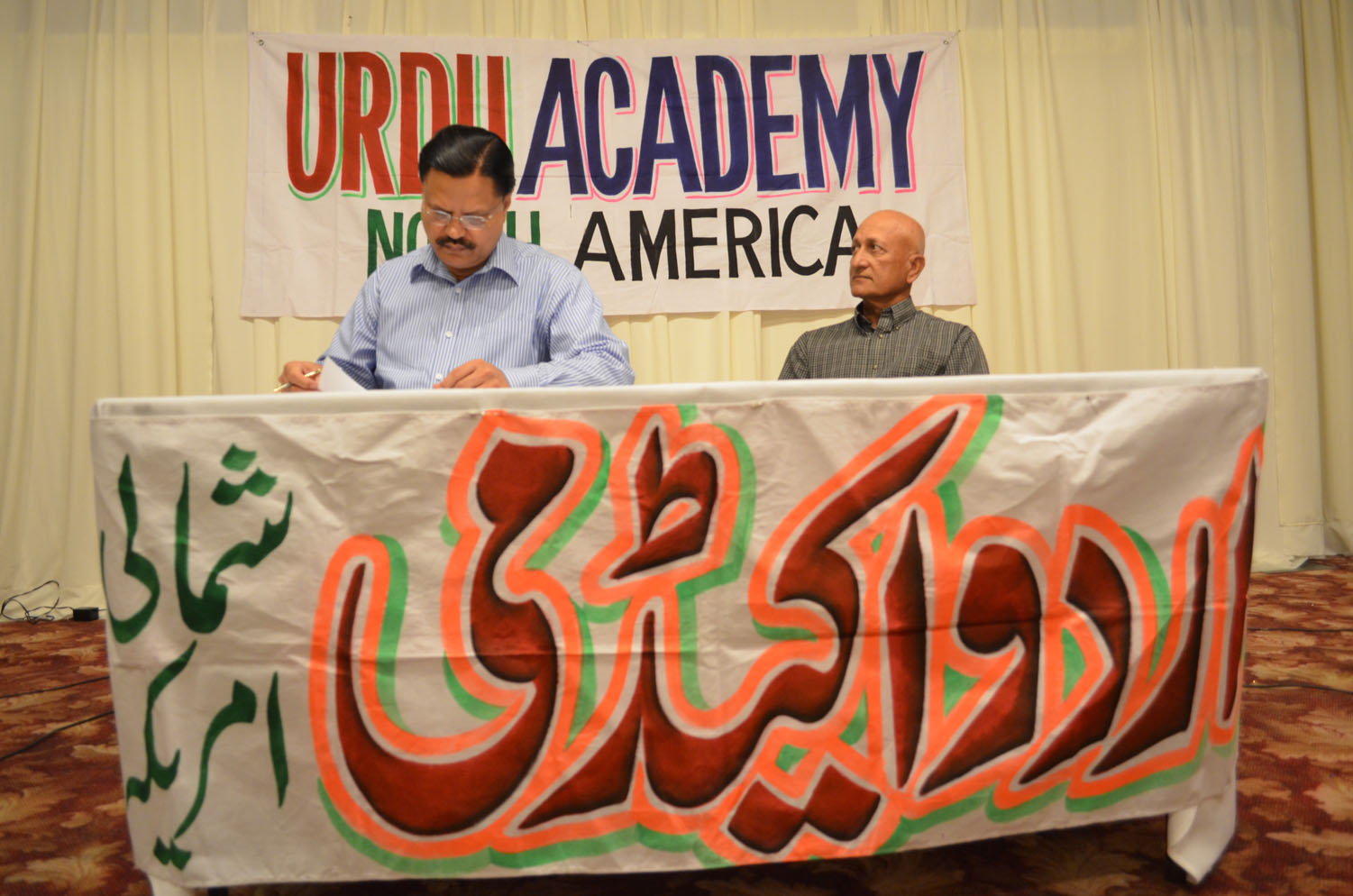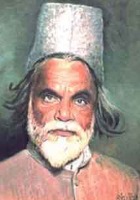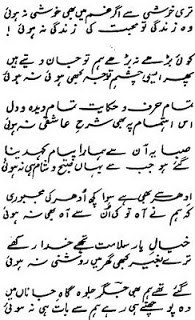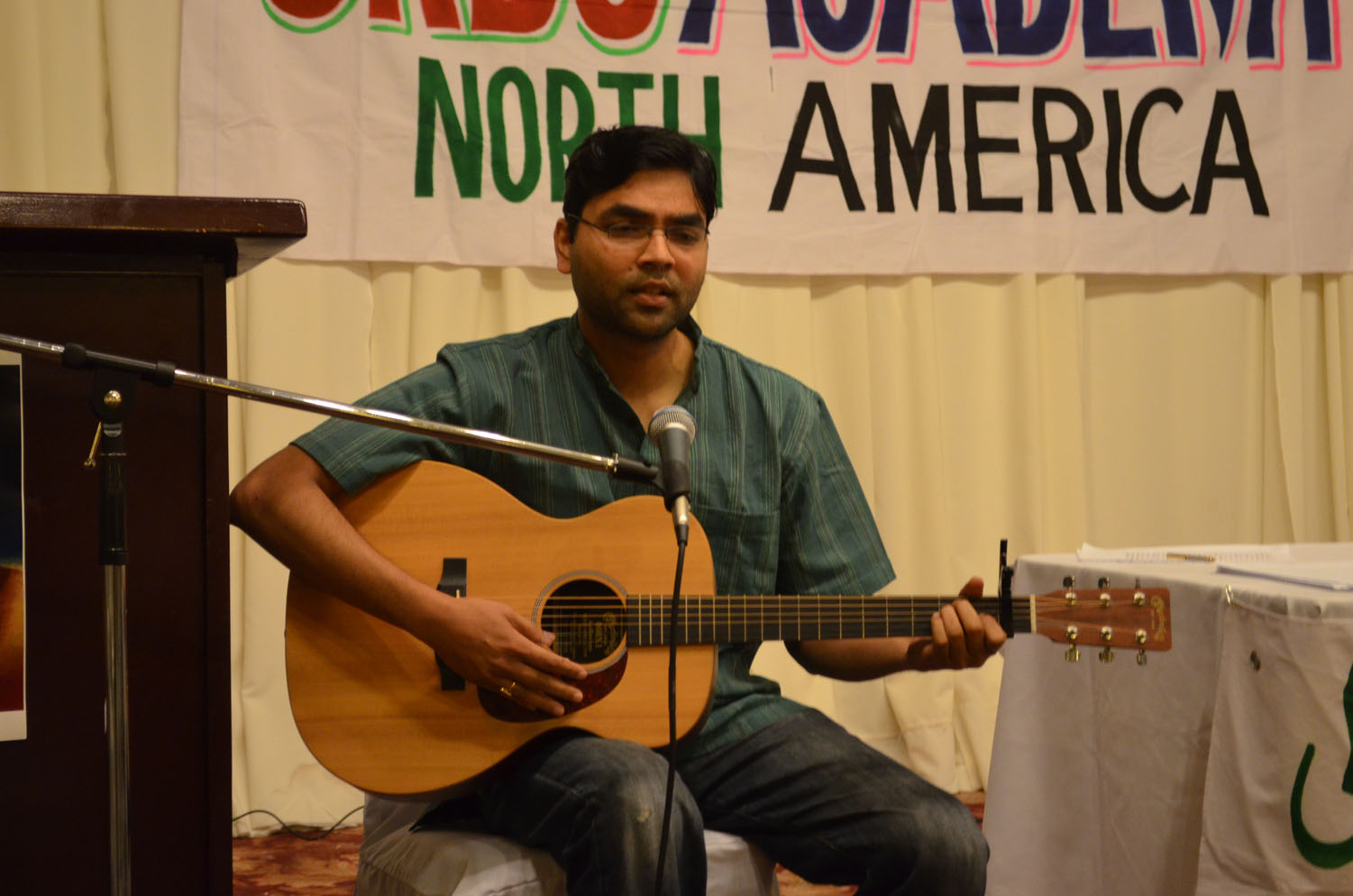|
By Abdus Sattar Ghazali
Urdu Academy of North America held its monthly literary event on June 16, 2013 which was dedicated to the life and work of a great Urdu poet, Jigar Moradabadi. The event held the Chandni Restaurant drew large crowd.
A prominent personality of the Bay Area, Amjad Noorani, presided over the event while Dr. Tahir Mahmood was the Master of the Ceremony (MC).
As usual a well-research paper was presented on the life and work of one of the most famous Urdu poets of the 20th century and a celebrated Urdu ghazal writer.
Dr. Tahir Mahmood presented this paper with his unique delivery style.
There was a long que of Urdu enthusiasts who were eager to recite the poetry of Jigar Moradabadi. Those were: Arvind Kumar , Asim Bajwa, Hatim Rani, Irshad Khan, Ismat Kamal, Jawed Umerani, Meraj Sultana Ghazali, Nagesh Avadhany, Naseer Humayun, Salma Arastu, Sarwat Iqbal, Shahzad Basir, Tassadduq Attari and Abdus Sattar Ghazali. 
Sabir Chishti Moradabadi, a prominent poet, also recited poetry of Jigar Moradabadi.
Star of the program were Dr. Anshuman Chandra and Almas Hameed Shabvani. Dr. Chandra, who appeared at the Urdu Academy event after a long time presented two ghazals of Jigar Moradabadi in his unique style on guitar. Almas Hameed Shabvani perhaps stole the show with her melodious presentation.
The Jigar Moradabadi event brought special joy for me as unexpectedly I me Mr. Usmani after almost 15 years. He was the First Secretary at the Indian Embassy in Kuwait where I spent about 32 years and we became friend.
Jigar Moradabadi was the nom de plume (takhallus) of Ali Sikandar, one of the most famous Urdu poets of the 20th century and a celebrated Urdu ghazal writer. Jigar Moradabadi was born on April 6, 1890 in Moradabad, Uttar Pradesh, India. He lost his father at an early age and did not have an easy childhood. At school (madrassah) he was taught both Arabic and Persian. His poetry teacher (ustad ) in the early days was Rasa Rampuri.
Still in his teens, Jigar, as he came to be known universally, moved to Gonda, near Lucknow. This proved to be a turning point in his life. Here, he befriended Asghar Gondvi, who later also emerged as a notable Urdu poet. Gondvi was only six years older than Jigar, who became his protégé. Gondvi's influence over Jigar, and the significant role he played in his life, should not be underestimated. He was his mentor, a father figure, an older brother, a teacher, a friend and a fellow poet, all rolled into one. Jigar even married a sister of Gondvi's wife. He made Gonda his permanent home and Gonda acquired one of the most famous literary figures to have ever lived there.
Jigar died on September 9, 1960 in Gonda. A small residential colony in Gonda city called Jigar Ganj is named after him. It is close to his original residence. An intermediate school is also named after him - the Jigar Memorial Inter College. Mazar-e-Jigar Moradabadi is in Topkhana, Gonda.
Jigar Moradabadi belonged to the classical school of ghazal writing and was a mentor to Majrooh Sultanpuri, who became a prominent lyricist in the Indian film industry and penned many popular songs in Urdu and Hindi. 
He never received any formal higher education. No university could have taught him what he taught himself in his chosen field. He is now regarded as one of the all-time great Urdu poets. Jigar was only the second poet in the history of Aligarh Muslim University to be awarded an honorary D.Litt - the first one to receive this honour was Allama Iqbal, which speaks volumes about Jigar's standing and reputation. He is already being mentioned in the same breath as Iqbal and Ghalib.
Research on Jigar Moradabadi and his poetry is ongoing and is also encouraged and supported by the Government of India sponsored National Council for Promotion of Urdu Language. Jigar's poetry is now an established academic subject in Urdu departments at many universities.
His first two collections are Daagh-e-Jigar and Shola-e-Toor. His third Aatish-e-Gul, established his reputation as a noteworthy ghazal poet who could give expression to new sensibilities in the traditional form of ghazal. In the third collection he is a changed poet who is aware of the unpleasant and even terrible facts of life. He talks of them in his ghazals without damaging the aesthetic and literary values of the form of ghazal. [Wikipedia]
See More Pictures
|